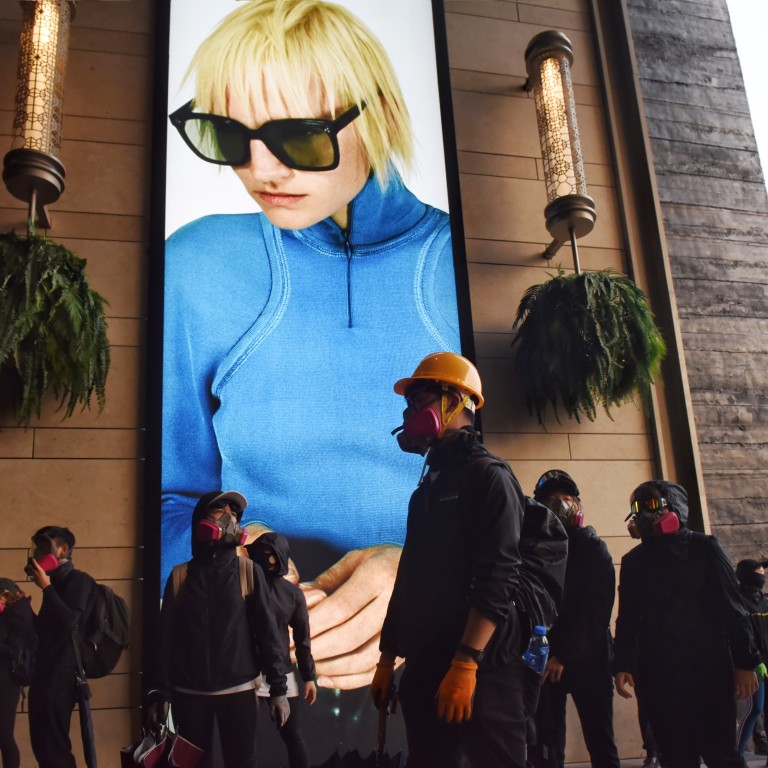
Hong Kong will keep crown as world’s top destination for visitors in 2019 despite protests, research firm Euromonitor forecasts
- City to beat Bangkok to top spot for tourists again in 2019, keeping No 1 ranking for tenth straight year, British-based company says
- Firm forecasts foreign arrivals to the city will drop 8.7 per cent to 26.71 million
Hong Kong will keep its spot as the world’s No 1 tourist destination for the tenth consecutive year in 2019, with pre-July arrivals – mainly from mainland China – mitigating the subsequent visitor slump caused by citywide protests, a research firm has predicted.
Visitor numbers will drop 8.7 per cent to 26.71 million for this year, according to data from Euromonitor International. Predicted growth of 6.9 per cent in second-placed Bangkok’s numbers would not be enough for it to take top spot, leaving the Thai capital on 25.84 million arrivals.
The British-based research company ranked those two cities, plus London, Macau, Singapore, Paris, Dubai, New York, Kuala Lumpur and Istanbul, the 10 most popular destinations for 2018, having studied foreign visitor statistics across 400 cities.
Foreign visitors are defined as people who visit another country for more than 24 hours, for a period not exceeding 12 months. In Hong Kong’s case – as well as that of Macau – it includes mainland Chinese visitors, who made up 78 per cent of the city’s total arrivals in the first 10 months of this year.
Euromonitor estimated global inbound arrivals would jump 4.2 per cent to 1.5 billion in 2019, with the top 100 cities, their total arrival numbers up 6.2 per cent from a year earlier, accounting for nearly 47 per cent of the total.
It said Hong Kong’s attractiveness as a destination arose from its proximity to the mainland, its vibrant shopping and a strong cultural heritage.
Simon Haven, senior analyst at Euromonitor, noted that Hong Kong was starting from a strong base ahead of Bangkok, adding that the gap was going to narrow considerably in 2019.
“The thing people forget is that the protests only really started to have an impact on arrivals in July, so that means that between January and June the numbers were very strong,” he said.
Hong Kong protests bring biggest retail slump on record
“If you look just over the first six months, the increase in arrivals was 14 per cent over the last year, so that’s a very strong performance in terms of arrivals. Only as of July, August, September did the numbers start to drop.”
Anti-government protests have gripped the city for just under six months, having been sparked by an extradition bill which has since been withdrawn. Demonstrations have regularly descended into clashes between residents and police, with the former hurling bricks and petrol bombs, and the latter responding with tear gas, rubber bullets and water cannon. Radical protesters have attacked railway stations and other transport links, causing travel disruption, as well as targeting businesses with perceived mainland links.
The disturbances have particularly hit popular tourist districts such as Causeway Bay, Tsim Sha Tsui, Jordan, Yau Ma Tei and Mong Kok.

In October, arrivals to Hong Kong were down 43.7 per cent year on year to 3.31 million – the biggest drop since May 2003 – with more than 40 jurisdictions worldwide issuing warnings or alerts for travellers heading to the city.
New cross-border transport infrastructure, such as the 55km Hong Kong-Zhuhai-Macau Bridge and the 23km local stretch of the Guangzhou-Shenzhen-Hong Kong Express Rail Link would provide consistent growth in arrivals from the mainland, Euromonitor said.
“Travel is resilient,” said Agilson Valle, a country manager with the company.
Citing the examples of London, Paris and Istanbul – all cities that suffered terrorist attacks in 2018 and still made it onto the top 10 list –Valle said “people forget” and the outlook was positive for Hong Kong.
But Paul Chan Chi-yuen, co-founder of Walk in Hong Kong, which runs guided tours in the city, was less optimistic.
“Terrorist attacks are one-off in nature, but Hong Kong’s political unrest is a sustained internal conflict,” he said.
“And the conflict involves the source of the city’s largest group of overseas visitors,” he added, referring to the anger aimed at mainland China generally.

Meanwhile, Shenzhen dropped three places to 13th in Euromonitor’s Top 100 cities list this year, behind Istanbul (10th), New Delhi (11th) and Antalya (12th).
“Turkey picked up quite a lot in the number of arrivals because of the devaluation of the Turkish lira, and it became a safer place again so Europeans started going back,” Valle said. “It was more Istanbul and Antalya growing in the number of visitors, not necessarily Shenzhen losing a lot.”



